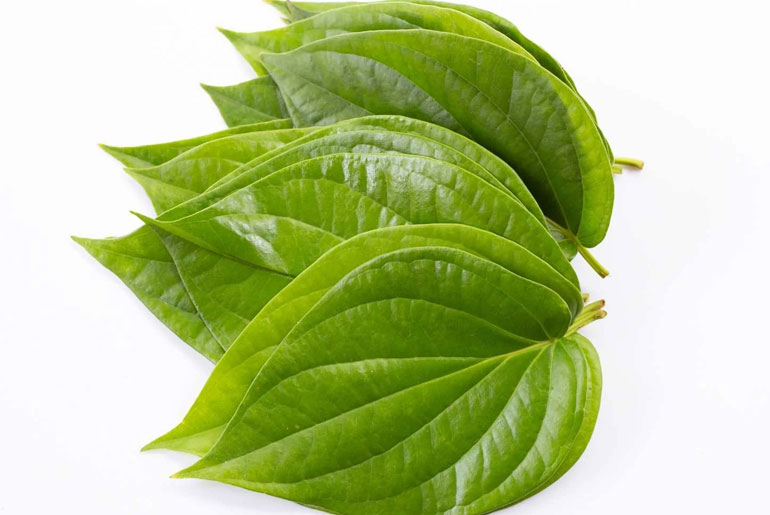Chewing betel leaves has been traditionally used in various cultures for its potential health benefits, including the management of elevated uric acid levels. Betel leaves contain antioxidants and anti-inflammatory properties that may help reduce inflammation associated with conditions like gout, which is caused by high uric acid levels. Additionally, the leaves can stimulate digestion and may promote overall metabolic health. However, it’s essential to approach the consumption of betel leaves with caution, as excessive use can lead to adverse effects, including oral health issues. It’s advisable to consult a healthcare professional before using betel leaves as a remedy for high uric acid levels.
Chewing betel leaves, commonly used in many cultures, especially in South Asia, can offer several benefits, particularly for managing elevated uric acid levels in the body. Here’s a detailed summary of its potential benefits:
1. Anti-inflammatory Properties
Uric Acid and Inflammation: Elevated uric acid levels can lead to gout, a type of arthritis characterized by painful inflammation in the joints. Betel leaves contain anti-inflammatory compounds that may help reduce swelling and pain associated with gout attacks.
2. Antioxidant Effects
Oxidative Stress Reduction: Betel leaves are rich in antioxidants, which can combat oxidative stress in the body. Reducing oxidative stress may help in lowering uric acid levels and protecting cells from damage.
3. Aiding Digestion
Digestive Health: Chewing betel leaves can stimulate the digestive system, which can enhance metabolism and digestion. Proper digestion helps in the efficient breakdown and elimination of waste products, potentially aiding in the regulation of uric acid levels.
4. Diuretic Effect
Increased Urine Output: Betel leaves may act as a diuretic, promoting the excretion of urine. Increased urine output can help in flushing out excess uric acid from the body, thus potentially lowering overall uric acid levels.
5. Rich in Nutrients
Essential Nutrients: Betel leaves are a source of vitamins and minerals, including calcium, iron, and vitamins A and C. These nutrients support overall health and may contribute to maintaining proper metabolic functions, including those involved in uric acid regulation.
6. Regulation of Metabolism
Metabolic Function: Some studies suggest that compounds in betel leaves may influence metabolic pathways, potentially improving the body’s ability to process purines (substances that break down into uric acid). This could help in managing uric acid levels more effectively.
7. Cultural and Traditional Uses
Traditional Remedies: In various cultures, betel leaves have been used in traditional medicine to treat a range of ailments, including digestive issues and inflammation. Their use in managing uric acid levels aligns with these traditional practices.
8. Psychological and Relaxation Benefits
Stress Reduction: Chewing betel leaves can provide a calming effect, which may help reduce stress-related triggers that could elevate uric acid levels. Stress management is important in overall health and can indirectly influence uric acid levels.
How to Use Betel Leaves:
- Chewing: Fresh betel leaves can be chewed directly. Some people may add slaked lime and areca nut for additional flavor and benefits.
- Juicing: Extracting juice from betel leaves can be a refreshing way to consume them, potentially enhancing their health benefits.
- Tea: Boiling betel leaves in water to make tea can provide a soothing drink that may help manage uric acid levels.
Recommendations for Use
- Moderation is Key: While chewing betel leaves can offer these benefits, it’s important to consume them in moderation. Excessive consumption can lead to other health issues, including oral health concerns.
- Consultation with Healthcare Provider: Individuals with high uric acid levels or gout should consult a healthcare provider for personalized advice and treatment options.
In summary, chewing betel leaves may provide several benefits for managing elevated uric acid levels, including anti-inflammatory effects, antioxidant support, improved digestion, diuretic properties, and overall nutrient intake. While they can be a helpful addition to a health regimen, they should not replace conventional treatments prescribed by a healthcare professional.
Disclaimer:
The information contained in this article is for educational and informational purposes only and is not intended as a health advice. We would ask you to consult a qualified professional or medical expert to gain additional knowledge before you choose to consume any product or perform any exercise.







